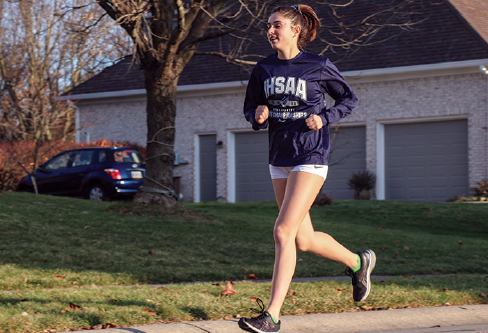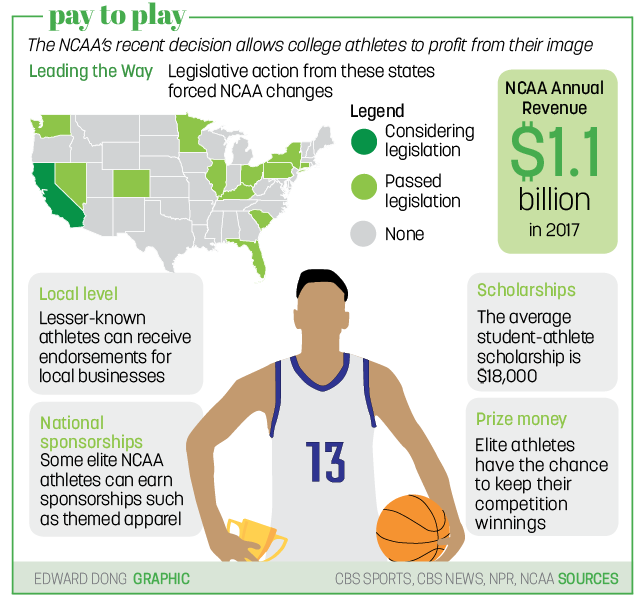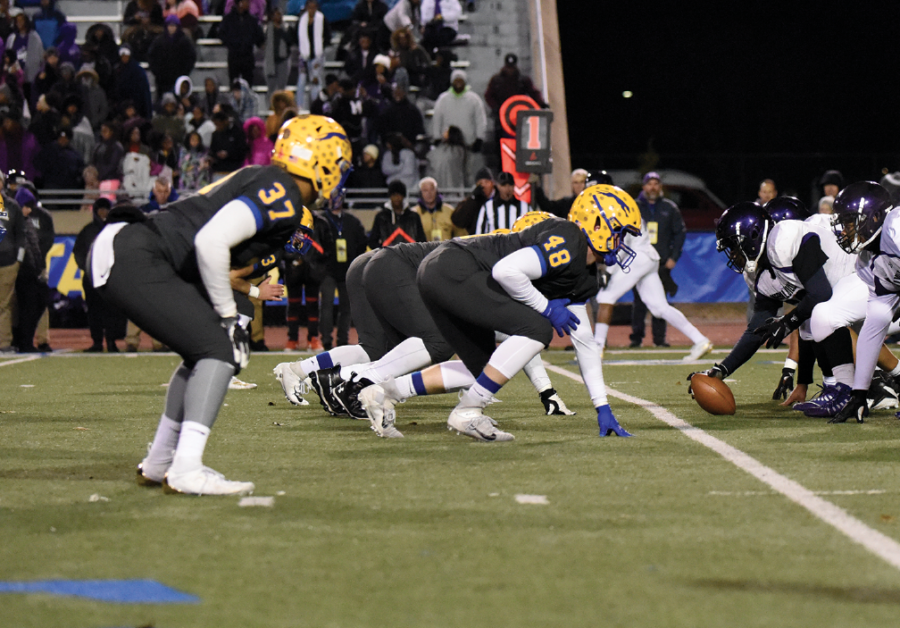Ever since the start of the National Collegiate Athletics Association (NCAA) in 1910, college athletes have never had the opportunity to make profits off of their games. This has created controversy in the sporting community about whether collegiate athletes should be allowed to gain money from endorsements, advertisements or from the games they play in.
In late September of this year, California issued a state-wide law banning colleges from prohibiting athletes from signing endorsements and advertisements, according to the New York Times. This event marked the beginning of a movement that is trying to get collegiate athletes nationwide paid for their plays.
In late October, according to NPR, the NCAA board of governors voted unanimously to start the process “to permit student-athletes to benefit from the use of their name, image and likeness.” This ruling means college athletes across the whole nation can now gain profits from their athletics.
Ty Wise, varsity football player and senior, is committed to playing football at IU starting in January. Wise is an outside linebacker, meaning he has a large responsibility in defense. He said the new NCAA rule change is long overdue and finds it necessary.
He said, “I love the new ruling because it allows athletes to build up a brand with their name and be rewarded for the large amounts of money they bring to their schools.”
Wise also said he thinks that the new rule will affect him personally.
He said, “I think it will affect every college athlete. For me, getting more money in my pockets will motivate me more than I already am since it will push me to perform better, so that my name is used more.”
On the other hand, Bruce Wolf, assistant athletic director at CHS, said he wants seniors to look past the monetary incentive and focus on the sport itself.
He said, “I hope the (seniors) consider the best academic and career fit for them, not where they might make some additional money.”

The Run Down:
Phoebe Bates, varsity cross-country and track runner, IU commit and senior, runs warm-up. Bates said she is not fond of the new rule change because she believes that it will cause college athletes to focus on money more than their sport. However, Bates added that she does not believe the rule will affect her
as much.
Another athlete committed to playing sports in college is Phoebe Bates, varsity cross country and track runner and senior. Bates plans to run at IU and said she might consider running professionally, depending on her performance in college.
Unlike Wise, though, Bates disagrees and said, “I am not that fond of the new rule because, at the end of the day, athletes play their sports because they love it, not because they want money. The rule might distract athletes from the real reason why they play. The rule change will not affect me that much even though I would enjoy my name being used. I want to focus on playing my sport, not so much the money that comes with it. If I do that, I might forget my love of running and become focused on making money, which is something I do not want to do.”
However, Wise said, “Putting money into college athletes’ pockets will help to eliminate worrying about money and could help with tuition for athletes. I personally do not see any cons of this rule because it creates a happier environment for more athletes.”
Wolf said he would have personally voted to prohibit compensation for athletes.
He said, “This new rule has been made to allow some compensation for some athletes, but it will cause an ‘opening of the floodgates’ for other avenues of compensation. I would not have voted for this because it would entice some athletes into just the money aspect of playing, not so much fun of the sport.”
He also gave some advice to future seniors who are thinking about committing or thinking of playing a collegiate sport.
Wolf said, “It is tempting to react to this sort of enticement, but in the long run, a conscientious and objective approach will bring about the best results.”

































![AI in films like "The Brutalist" is convenient, but shouldn’t take priority [opinion]](https://hilite.org/wp-content/uploads/2025/02/catherine-cover-1200x471.jpg)









































![Review: “The Immortal Soul Salvage Yard:” A criminally underrated poetry collection [MUSE]](https://hilite.org/wp-content/uploads/2025/03/71cju6TvqmL._AC_UF10001000_QL80_.jpg)
![Review: "Dog Man" is Unapologetically Chaotic [MUSE]](https://hilite.org/wp-content/uploads/2025/03/dogman-1200x700.jpg)
![Review: "Ne Zha 2": The WeChat family reunion I didn’t know I needed [MUSE]](https://hilite.org/wp-content/uploads/2025/03/unnamed-4.png)
![Review in Print: Maripaz Villar brings a delightfully unique style to the world of WEBTOON [MUSE]](https://hilite.org/wp-content/uploads/2023/12/maripazcover-1200x960.jpg)
![Review: “The Sword of Kaigen” is a masterpiece [MUSE]](https://hilite.org/wp-content/uploads/2023/11/Screenshot-2023-11-26-201051.png)
![Review: Gateron Oil Kings, great linear switches, okay price [MUSE]](https://hilite.org/wp-content/uploads/2023/11/Screenshot-2023-11-26-200553.png)
![Review: “A Haunting in Venice” is a significant improvement from other Agatha Christie adaptations [MUSE]](https://hilite.org/wp-content/uploads/2023/11/e7ee2938a6d422669771bce6d8088521.jpg)
![Review: A Thanksgiving story from elementary school, still just as interesting [MUSE]](https://hilite.org/wp-content/uploads/2023/11/Screenshot-2023-11-26-195514-987x1200.png)
![Review: "When I Fly Towards You", cute, uplifting youth drama [MUSE]](https://hilite.org/wp-content/uploads/2023/09/When-I-Fly-Towards-You-Chinese-drama.png)
![Postcards from Muse: Hawaii Travel Diary [MUSE]](https://hilite.org/wp-content/uploads/2023/09/My-project-1-1200x1200.jpg)
![Review: "Ladybug & Cat Noir: The Movie," departure from original show [MUSE]](https://hilite.org/wp-content/uploads/2023/09/Ladybug__Cat_Noir_-_The_Movie_poster.jpg)
![Review in Print: "Hidden Love" is the cute, uplifting drama everyone needs [MUSE]](https://hilite.org/wp-content/uploads/2023/09/hiddenlovecover-e1693597208225-1030x1200.png)
![Review in Print: "Heartstopper" is the heartwarming queer romance we all need [MUSE]](https://hilite.org/wp-content/uploads/2023/08/museheartstoppercover-1200x654.png)




